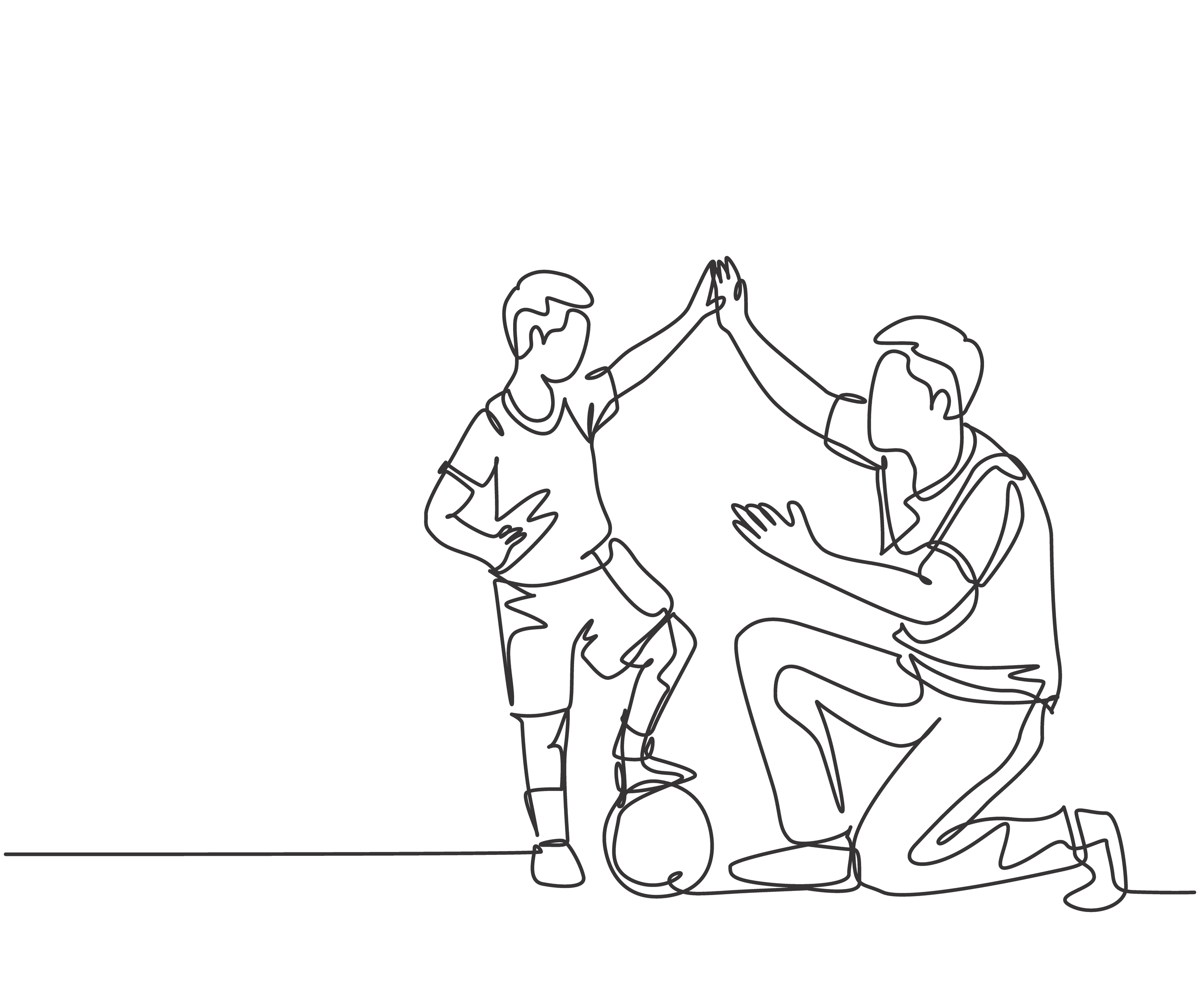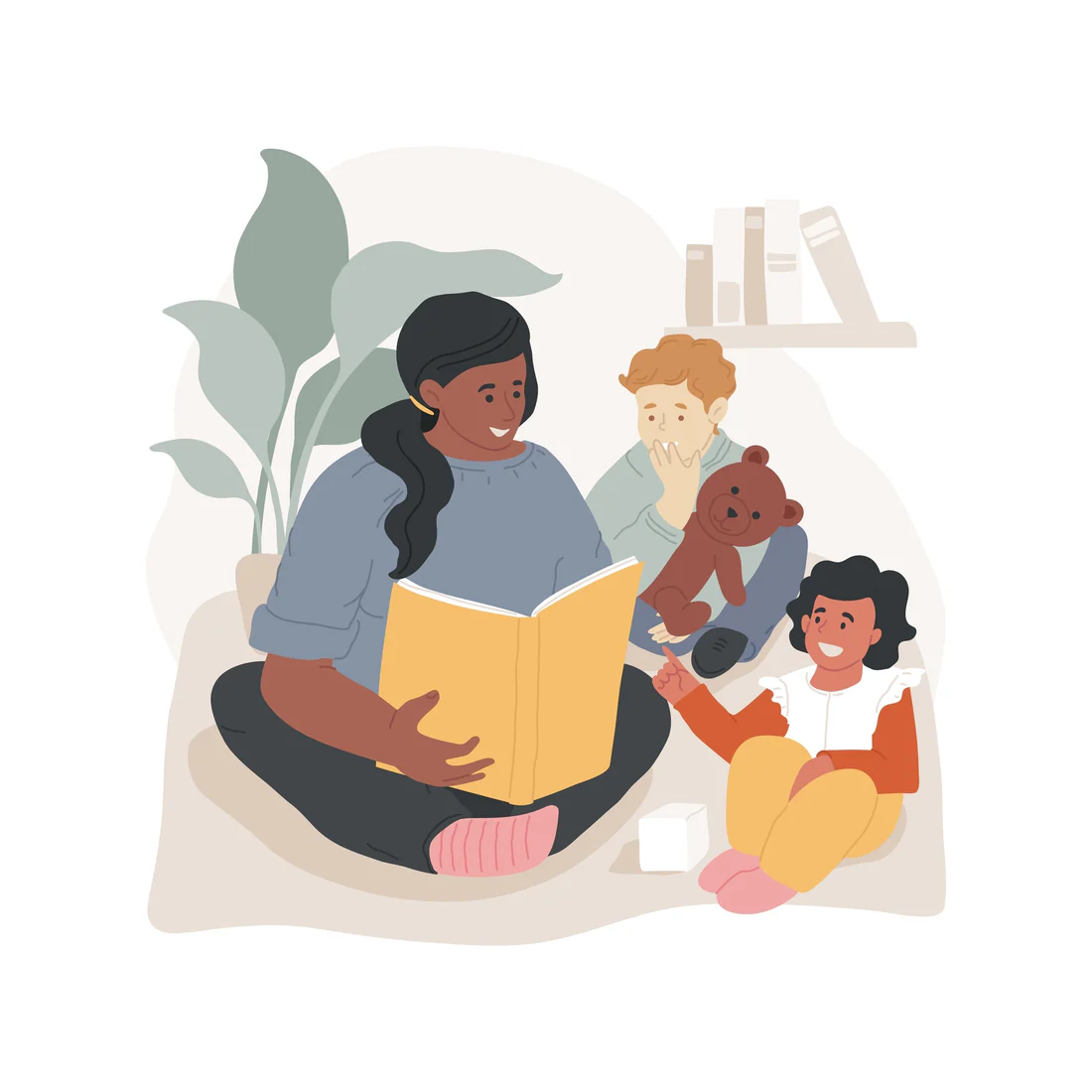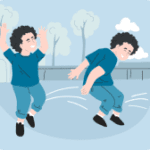Sensory Tools for Neurodivergent Adults
Sensory Tools for Neurodivergent Adults
What are sensory tools?
Sensory tools refer to a variety of products or activities that are designed to help individuals with sensory processing issues. These tools can be used by neurodivergent adults, including those with autism, ADHD, and other related conditions.
Why are sensory tools important for neurodivergent adults?
Many neurodivergent adults may experience challenges in regulating their sensory input due to their heightened or diminished sensitivity to certain stimuli. This can lead to difficulties in daily activities, such as working, socializing, and self-care. Sensory tools can help these individuals manage their sensory issues by providing a way to regulate their input and create a more comfortable environment for themselves.
What types of sensory tools are available for neurodivergent adults?
There are various types of sensory tools that may benefit neurodivergent adults, including:
- Fidget toys – These are small handheld objects that can be squeezed, twisted, or manipulated to provide sensory input.
- Weighted blankets – These are heavy blankets that provide deep pressure stimulation and can help with relaxation and anxiety.
- Noise-cancelling headphones – For individuals who are sensitive to loud noises, these headphones block out unwanted sounds and provide a calmer environment.
- Aromatherapy – Certain scents, such as lavender or peppermint, can have a calming effect on individuals with sensory issues.
- Sensory swings – These are specialized swings that provide vestibular input and can be helpful for individuals who struggle with balance and coordination.
- Chewelry – This refers to jewelry that is safe for chewing and can be used as a sensory tool for individuals who have oral sensitivities.
How do I choose the right sensory tools?
When considering which sensory tools may be beneficial, it’s important to keep in mind each individual’s specific needs and preferences. What works for one person may not work for another. It may be helpful to consult with a healthcare professional or occupational therapist who can provide guidance on which tools may be most effective.
In addition, it’s important to consider safety and quality when purchasing sensory tools. Look for products that are specifically designed for their intended purpose and have been tested by experts.
Are sensory tools only for neurodivergent adults?
No, sensory tools can benefit individuals of all ages and neurodiversities. While they may be particularly helpful for neurodivergent adults, anyone who struggles with sensory processing issues can benefit from using these tools. It’s important to recognize that everyone experiences sensory input differently and what may be overwhelming for one person may not affect another in the same way.
Do I need a diagnosis to use sensory tools?
No, a diagnosis is not necessary to use sensory tools. Anyone who feels they may benefit from using these tools can explore and experiment with different options to find what works best for them. It’s important to remember that each person’s sensory needs are unique and there is no one-size-fits-all solution.
Can using sensory tools improve my quality of life as a neurodivergent adult?
Yes, using sensory tools can greatly improve the quality of life for neurodivergent adults. By helping to regulate sensory input, these tools can reduce stress and anxiety, increase focus and concentration, and promote a sense of calmness and well-being. This can lead to improved overall functioning in daily activities and better relationships with others. Additionally, using sensory tools can provide a sense of control and empowerment for individuals who may feel overwhelmed by their sensory challenges. So, it is important to explore different sensory tools and find what works best for you. Remember, everyone’s journey is unique and finding the right tools can greatly enhance your daily life as a neurodivergent adult.
How do I know which sensory tools will work best for me as a neurodivergent adult?
There is no one “right” answer to this question as each individual’s sensory needs and preferences are unique. It may take some experimentation and trial-and-error to find the best tools for you. Some tips for finding the right sensory tools include:
- Research different types of sensory tools and their benefits
- Consult with a healthcare professional or occupational therapist for guidance
- Consider your personal sensory needs and preferences
- Start by trying one or two tools at a time to see how they work for you
- Be open to trying new things and don’t get discouraged if something doesn’t work – there are many options available! Ultimately, the best way to know which sensory tools will work best for you is to try them out and see how they make you feel. Trust your own instincts and remember that finding the right tools may take time, but the benefits are worth it. So don’t be afraid to explore and find what works best for you as a neurodivergent adult.
Can I use sensory tools in public without feeling self-conscious?
Yes, using sensory tools in public is becoming more and more common. It’s important to remember that everyone has different needs and ways of coping with their struggles. Using sensory tools should not be seen as embarrassing or abnormal, but rather as a helpful tool for managing sensory issues in daily life. If you feel self-conscious about using your sensory tools in public, it may help to explain to others what they are and how they help you. You can also try using more discreet tools, such as earbuds or chewelry. Ultimately, it’s important to prioritize your own well-being and comfort over any potential judgment from others. So don’t be afraid to use your sensory tools wherever and whenever you need them!
Are there any risks associated with using sensory tools?
As with any tool or product, there may be some risks associated with using sensory tools. For example, if not used properly, fidget toys could become a choking hazard for individuals who tend to put things in their mouths. Weighted blankets should also be used under supervision and should never be too heavy for the individual using them. It’s important to read instructions and warnings carefully when using sensory tools and to always prioritize safety. As long as they are used appropriately, the benefits of sensory tools greatly outweigh any potential risks. So be sure to educate yourself on proper usage and pay attention to any warning labels before incorporating them into your daily routine.
Do I need a doctor’s recommendation to use sensory tools?
No, a doctor’s recommendation is not necessary to use sensory tools. However, it may be helpful to discuss with your healthcare provider the potential benefits of using these tools for your specific needs and any safety concerns they may have. They may also be able to provide recommendations for specific types of sensory tools or connect you with resources for finding high-quality products. Ultimately, the decision to use sensory tools should be based on your own personal needs and preferences, rather than a doctor’s recommendation. So don’t hesitate to explore different options and find what works best for you as a neurodivergent adult. Remember, you are the expert on your own sensory needs and well-being. So trust yourself and don’t be afraid to seek professional guidance if needed.
Can using sensory tools improve my quality of life as a neurodivergent adult?
Yes, using sensory tools can greatly improve the quality of life for neurodivergent adults. By helping to regulate sensory input, these tools can reduce stress and anxiety, increase focus and concentration, and promote a sense of calmness and well-being. This can lead to improved overall functioning in daily activities and better relationships with others. Additionally, using sensory tools can provide a sense of control and empowerment for individuals who may feel overwhelmed by their sensory challenges. So, it is important to explore different sensory tools and find what works best for you. Remember, everyone’s journey is unique and finding the right tools can greatly enhance your daily life as a neurodivergent adult.
How do I know which sensory tools will work best for me as a neurodivergent adult?
There is no one “right” answer to this question as each individual’s sensory needs and preferences are unique. It may take some experimentation and trial-and-error to find the best tools for you. Some tips for finding the right sensory tools include:
- Research different types of sensory tools and their benefits
- Consult with a healthcare professional or occupational therapist for guidance
- Consider your personal sensory needs and preferences
- Start by trying one or two tools at a time to see how they work for you
- Be open to trying new things and don’t get discouraged if something doesn’t work – there are many options available! Ultimately, the best way to know which sensory tools will work best for you is to try them out and see how they make you feel. Trust your own instincts and remember that finding the right tools may take time, but the benefits are worth it. So don’t be afraid to explore and find what works best for you as a neurodivergent adult.
How often should I use sensory tools?
The frequency of using sensory tools will vary for each individual. Some may benefit from using them throughout the day, while others may only need them in specific situations or environments. It’s important to pay attention to your own needs and use sensory tools as often as necessary for regulating your sensory input. This could mean using them every day or just a few times a week. Remember, it’s not about how often you use them, but rather the effectiveness of using them when needed. So listen to your body and use sensory tools as often as they help you maintain a sense of balance and well-being.
Can sensory tools be used in conjunction with other therapies or treatments?
Yes, sensory tools can be used in conjunction with other therapies or treatments. In fact, they are often recommended as a complementary tool for individuals receiving occupational therapy or other forms of treatment for sensory processing issues. Sensory tools can also be used alongside other coping strategies and techniques, such as mindfulness exercises or deep breathing techniques. Ultimately, the key is to find what works best for you and incorporate sensory tools into your overall self-care routine. So don’t be afraid to combine different methods and see what helps you the most as a neurodivergent adult. Remember, there is no one “right” way to manage sensory challenges – it’s about finding what works best for you as an individual. So keep experimenting and incorporating different strategies into your daily life to find the best balance and well-being. With the right tools and techniques, you can thrive as a neurodivergent adult in a world that may not always understand or accommodate your sensory needs. So don’t be afraid to embrace your unique self and use all the resources available to live a fulfilling and empowered life.
Are there any specific techniques for using sensory tools as a neurodivergent adult?
There are no one-size-fits-all techniques for using sensory tools as a neurodivergent adult, as everyone’s needs and preferences are different. However, some tips for effectively using these tools include:
- Start by identifying specific triggers or situations where you may benefit from using sensory tools
- Experiment with different types of tools to see what works best for you in those situations
- Incorporate sensory tools into your daily routine, rather than just using them when needed in a crisis
- Use techniques such as deep breathing or mindfulness exercises while using sensory tools to enhance their effectiveness
- Don’t be afraid to adjust or switch up the types of sensory tools you use if they are not working for you
Ultimately, it’s important to find a balance of using sensory tools in a way that is effective and manageable for you. If you are unsure of how to effectively use sensory tools, consulting with an occupational therapist or other healthcare professional can provide guidance and support. Remember, the goal is to find what helps you maintain a sense of well-being and empowerment as a neurodivergent adult. So continue exploring and experimenting with different techniques and tools to find what works best for you. In the end, using sensory tools can greatly improve your quality of life and help you thrive in a neurotypical world.
Do sensory tools have any long-term benefits?
Yes, using sensory tools can have long-term benefits for neurodivergent adults. By regulating sensory input and promoting a sense of calmness and well-being, these tools can improve overall functioning in daily activities and relationships. Additionally, consistently using sensory tools can also help individuals develop greater self-awareness and coping strategies for managing their sensory challenges. This can lead to improved self-esteem, confidence, and a better sense of control over one’s own well-being. Ultimately, incorporating sensory tools into daily life can have long-lasting positive effects and contribute to an overall healthier and happier lifestyle for neurodivergent adults.
Can I make my own sensory tools at home?
Yes, there are many DIY options available for creating sensory tools at home. These can be a cost-effective and personalized way to incorporate sensory tools into your daily routine. Some ideas for making sensory tools at home include:
- Making homemade fidget toys using materials like stress balls, fabric scraps, or rubber bands
- Creating a calming sensory bottle using water, glitter, and other small objects
- Using essential oils or scented candles for aromatherapy
- Making a weighted blanket using fabric and filling like rice or beans
Remember to always use caution when creating homemade sensory tools and to consult with a healthcare professional if you have any concerns. Additionally, there are many online resources and communities dedicated to DIY sensory tools that can provide inspiration and support for creating your own at home. So get creative and have fun incorporating sensory tools into your daily life! Overall, using sensory tools can greatly benefit neurodivergent adults in managing their sensory challenges and promoting overall well-being. By finding the right techniques and tools that work for you, you can thrive as a neurodivergent adult and live a fulfilling and empowered life. So don’t hesitate to explore and incorporate sensory tools into your self-care routine today! Keep in mind that while these tools may not be a cure for sensory processing issues, they can greatly improve daily functioning and quality of life. Embrace your unique needs and preferences as a neurodivergent adult, and remember that you have the power to create a fulfilling and empowered life for yourself.
How do I explain the use of sensory tools to others?
Explaining the use of sensory tools to others can be a challenge, as not everyone may understand or be familiar with the concept of sensory processing issues. However, it is important to communicate your needs and advocate for yourself in order to receive the support and understanding you deserve. Here are some tips for explaining the use of sensory tools to others:
- Educate them on what sensory processing is and how it affects you
- Share specific examples of situations where using sensory tools has helped you
- Explain the purpose and benefits of using sensory tools in managing your challenges
- Use non-judgmental and understanding language to help others better understand your needs
Remember, it’s okay if not everyone fully understands or accepts your use of sensory tools. What matters most is finding what works best for you and advocating for your own well-being.
Can I use sensory tools at work or in a professional setting?
Yes, you can absolutely use sensory tools at work or in a professional setting. It’s important to prioritize your well-being and utilize the tools that help you function at your best. However, it may be helpful to communicate with your employer or colleagues about your needs and explain how using sensory tools can benefit your performance. You can also discuss any accommodations that may need to be made for your sensory needs in the workplace. Remember, using sensory tools is a form of self-care and can greatly improve daily functioning, so it’s important to prioritize their use even in professional settings. Additionally, there are various discreet and professional-looking sensory tools available that you can use at work or in meetings without drawing too much attention. It’s all about finding what works best for you and using sensory tools as a tool to support your success in both personal and professional environments.
Are there any specific precautions I should take when using sensory tools?
As with any tools or strategies, it’s important to use sensory tools responsibly and safely. If you have any concerns or medical conditions, consult with a healthcare professional before incorporating new sensory tools into your routine. Additionally, always make sure to follow proper hygiene practices when using sensory tools and regularly clean them to prevent the spread of germs. Lastly, be mindful of any potential distractions or safety hazards when using sensory tools, especially in public settings. By using sensory tools responsibly and mindfully, you can maximize their benefits and continue to thrive as a neurodivergent adult.
What are some common misconceptions about sensory tools for neurodivergent adults?
There are some common misconceptions about sensory tools that may prevent neurodivergent adults from utilizing them effectively. One of the biggest misconceptions is that sensory tools are only for children or those with severe sensory processing disorders. This is simply not true, as anyone can benefit from using sensory tools to support their well-being and daily functioning. Additionally, there may be a belief that using sensory tools is a sign of weakness or inability to cope with sensory challenges. In reality, incorporating sensory tools into one’s routine is a form of self-care and can greatly improve overall quality of life. It’s important to challenge these misconceptions and embrace the use of sensory tools as a positive and empowering choice for neurodivergent adults.
How do I know if a particular sensory tools is right for me as a neurodivergent adult?
There is no one-size-fits-all approach when it comes to sensory tools for neurodivergent adults. It’s important to explore and experiment with different tools to see what works best for you as an individual. A good rule of thumb is to choose sensory tools that provide comfort, relief, or relaxation without causing harm or discomfort. Additionally, consider your personal preferences and needs when selecting sensory tools. For example, if you are sensitive to certain textures or sounds, opt for tools that cater to those sensitivities. It may also be helpful to consult with a healthcare professional or occupational therapist for guidance on finding the right sensory tools for your specific needs.
Can I use sensory tools to help with specific symptoms or challenges related to my neurodivergence?
Yes, sensory tools can be used to help with a variety of symptoms and challenges associated with neurodivergence. For example, weighted blankets or compression vests may provide comfort for those with anxiety or hypersensitivity to touch. Fidget toys or chewable jewelry can be helpful for individuals with ADHD or oral sensory seeking behaviors. There are also specific sensory tools designed for calming, alerting, or focusing the senses, which can be beneficial for individuals with sensory processing issues. It’s important to identify your specific symptoms and challenges and then explore different sensory tools that may help address them. Remember, there is no “right” or “wrong” way to use sensory tools – it’s all about finding what works best for you as an individual.
Can sensory tools help with both physical and emotional symptoms?
Yes, sensory tools can help with both physical and emotional symptoms. For example, deep pressure stimulation provided by weighted blankets or compression vests can help alleviate physical tension and promote relaxation. Meanwhile, fidget toys or stress balls can help release pent-up emotions and provide a sense of calm during moments of anxiety or overwhelm. Additionally, engaging in sensory activities such as swinging or rocking may provide both physical and emotional benefits, such as regulating mood and increasing overall well-being. It’s important to recognize the interconnectedness of physical and emotional symptoms and how sensory tools can address both aspects for neurodivergent individuals. Overall, incorporating a variety of sensory tools into your daily routine can greatly improve your overall quality of life as a neurodivergent adult.
Are there any age restrictions for using sensory tools as a neurodivergent adult?
No, there are no age restrictions for using sensory tools as a neurodivergent adult. As long as the individual finds the tool helpful and beneficial, they can continue to use it regardless of their age. In fact, many adults may find that incorporating sensory tools into their routine later in life can greatly improve their well-being and daily functioning. It’s never too late to explore and utilize sensory tools as a way to support your neurodivergent needs. Whether you are in your 20s, 50s, or beyond, there is no expiration date on the benefits of incorporating sensory tools into your life. So don’t be afraid to try out different tools and see how they can positively impact your journey as a neurodivergent adult. Remember, self-care knows no age limit and finding what works best for you is key to thriving as a neurodiverse individual.
Do I need to consult a specialist before using sensory tools?
While it is not necessary to consult a specialist before using sensory tools, it may be helpful to seek guidance from a healthcare professional or occupational therapist. They can provide valuable insight and recommendations based on your specific needs and challenges. Additionally, consulting with a specialist can help ensure that you are using the sensory tools in a safe and effective manner. It’s always important to prioritize your well-being and consult with professionals when needed. However, it’s also important to listen to your own body and instincts when incorporating sensory tools into your routine. Remember, you know yourself best and what works for others may not necessarily work for you. Trusting your own judgment and seeking support when necessary can help you reap the benefits of sensory tools as a neurodivergent adult. In conclusion, incorporating sensory tools into your routine as a neurodivergent adult is not a sign of weakness or inability to cope, but rather an empowering choice that can greatly improve your overall well-being and daily functioning.
Can sensory tools be used alongside medication for neurodivergent adults?
Yes, sensory tools can be used alongside medication for neurodivergent adults. In fact, incorporating sensory tools into your treatment plan may even enhance the effectiveness of medication and provide additional support in managing symptoms. However, it’s important to consult with a healthcare professional before making any changes to your medication regimen and to ensure that the sensory tools do not interfere with any prescribed medications. It’s also important to remember that sensory tools should not be used as a replacement for medication, but rather as a complementary tool in managing symptoms and promoting overall well-being. As always, it’s crucial to prioritize your own health and collaborate with healthcare professionals to find the best treatment plan for your individual needs. Overall, incorporating both medication and sensory tools can lead to a more holistic and effective approach to managing neurodivergence. So don’t be afraid to explore different options and find what works best for you as an individual. Remember, there is no one-size-fits-all solution and it’s important to focus on what supports your well-being and overall quality of life.
How can I incorporate sensory tools into my daily routine as a neurodivergent adult?
Incorporating sensory tools into your daily routine as a neurodivergent adult can be done in a variety of ways. You can start by identifying the specific symptoms or challenges you face and then exploring sensory tools that may address them. Examples include incorporating fidget toys or stress balls during moments of anxiety, using noise-cancelling headphones to block out overstimulating sounds, or engaging in sensory activities such as swinging or rocking to regulate mood. Additionally, you can set aside specific times during the day to engage in sensory activities, such as taking a short break at work to use a weighted lap pad or going for a walk to enjoy nature and stimulate your senses. Remember, there is no “right” or “wrong” way to incorporate sensory tools into your routine, so don’t be afraid to try out different methods and see what works best for you. It’s also important to keep an open mind and continue exploring new tools as your needs and preferences may change over time. Overall, incorporating sensory tools into your daily routine can greatly enhance your overall well-being and help you thrive as a neurodivergent adult.
Are there any specific brands or products that are recommended for neurodivergent adults?
There are many brands and products on the market that cater specifically to neurodivergent individuals, but it’s important to remember that everyone’s needs and preferences may vary. It may be helpful to read reviews and do some research before purchasing any sensory tools or products. Some popular brands for sensory tools include Stimtastic, Chewigem, and Tangle Creations. However, it’s also important to keep in mind that sensory tools can come in all shapes and forms, so don’t limit yourself to just these brands. You may find helpful and effective sensory tools in unexpected places such as thrift stores or online marketplaces. It’s important to find what works best for you and your individual needs rather than relying solely on brand names.
Can I use sensory tools for conditions other than neurological ones?
Yes, sensory tools can be beneficial for individuals with a variety of conditions, not just neurological ones. Sensory tools can also be useful for individuals with anxiety, PTSD, ADHD, and other mental health conditions that may benefit from regulating sensory experiences. Additionally, sensory tools can be helpful in managing symptoms related to chronic pain or physical disabilities. It’s important to note that while sensory tools can offer support and relief for a range of conditions, they should not be used as a replacement for professional medical treatment. It’s always important to consult with healthcare professionals and prioritize your own well-being when incorporating any new tools or strategies into your routine. Overall, sensory tools can be a valuable resource for individuals with various needs, providing comfort, regulation, and empowerment in their daily lives.
What types of environments are best suited for using sensory tools?
Sensory tools can be used in a variety of environments, as their purpose is to help regulate and support individuals with different sensory needs. However, some environments may be more conducive to using sensory tools than others. For example, if you are in a busy or overstimulating environment, such as a crowded shopping mall or loud workplace, it may be beneficial to use sensory tools to create a sense of calm and focus. On the other hand, in quiet or low-stimulus environments such as your own home or a peaceful park, you may not feel the need to use sensory tools as often. Ultimately, it’s important to listen to your body and assess what environment you are in before deciding whether to incorporate sensory tools. Additionally, it’s important to respect the rules and guidelines of different environments, such as school or work settings, and ensure that you are not causing disruption or distraction to others while using sensory tools. In general, sensory tools can be used in a variety of settings as long as they are being used appropriately and respectfully.
How can I advocate for the use of sensory tools in my workplace or school?
Advocating for the use of sensory tools in your workplace or school can be a challenging task, but it’s important to remember that promoting inclusivity and accommodations benefits not just neurodivergent individuals, but everyone. Start by educating yourself on the benefits of sensory tools and gather research or resources to support your argument. Then, speak with a trusted supervisor or teacher about incorporating sensory tools into your workplace or school environment. Be prepared to explain how these tools can help you and provide suggestions for implementing them effectively. You can also encourage others to speak up and share their own experiences with sensory tools, creating a more inclusive and understanding environment. By speaking up and advocating for the use of sensory tools, you are not only advocating for yourself, but also for the neurodivergent community as a whole. Overall, it’s important to communicate openly and respectfully while promoting the use of sensory tools in different settings. As more individuals become aware of the benefits of sensory tools, there is potential for greater understanding and acceptance within society.
How do I store and care for my sensory tools?
The storage and care of sensory tools can vary depending on the specific tool, but there are some general tips that can apply to most sensory items. It’s important to store your tools in a clean and dry environment to prevent any damage or contamination. You may also want to keep them in a designated bag or container to ensure they stay organized and easily accessible. Some tools may require regular cleaning or replacement, so it’s important to follow the instructions provided by the manufacturer. Additionally, if you are using chewable sensory tools, be mindful of potential wear and tear and replace them as needed for safety reasons. Overall, taking good care of your sensory tools will ensure their effectiveness and longevity in supporting your well-being.
Can I use sensory tools in a group or community setting?
Yes, sensory tools can be used in a group or community setting. In fact, using sensory tools with others who have similar needs or preferences can be a great way to feel supported and understood. However, it’s important to respect each individual’s boundaries and ensure that everyone feels comfortable and included. It may also be helpful to discuss any potential triggers or sensitivities with the group beforehand to prevent any unintended discomfort or distress. Additionally, be mindful of the space and any potential disruptions while using sensory tools in a group setting. Overall, incorporating sensory tools into group activities can help foster a sense of community and understanding among individuals with different sensory needs. So don’t be afraid to suggest using sensory tools in your next social gathering or support group meeting!
Yes, there are various financial assistance programs available for individuals who may need help obtaining sensory tools. For example, some insurance plans may cover the cost of certain tools with a doctor’s recommendation. Additionally, there are non-profit organizations and charities that provide grants or funding for assistive devices and equipment, including sensory tools. It’s also worth checking if your workplace or school offers any accommodations or reimbursements for sensory tools. If you are unable to find financial assistance, consider reaching out to local support groups or online communities for potential resources and recommendations. Remember, everyone deserves access to the tools they need for their well-being and there may be options available to help make them more affordable.
How do I know if a sensory tool is working for me as a neurodivergent adult?
As a neurodivergent adult, it may take some trial and error to find the sensory tools that work best for you. Some indicators that a tool is working for you include feeling more focused, calm, or less overwhelmed when using it. You may also notice an improvement in your mood or ability to regulate your emotions while using the tool. It’s important to regularly reassess and check in with yourself to see if a tool is still effective or if you may need to try a different one. It’s also helpful to seek feedback from others who may have noticed changes in your behavior or well-being since using sensory tools. Overall, the effectiveness of sensory tools can vary for each individual, so it’s important to find what works best for you and your specific needs. Remember, it’s okay to experiment and make adjustments as needed in order to find the best support for yourself. With patience and self-awareness, you can discover the sensory tools that truly benefit you as a neurodivergent adult.
What should I do if I experience discomfort while using a sensory tool?
If you experience discomfort while using a sensory tool, it’s important to stop and assess the situation. Take note of what may be causing the discomfort and try to make adjustments or modifications as needed. This could mean using the tool for a shorter period of time, adjusting its intensity or pressure, or trying a different type of sensory tool altogether. It’s also important to communicate your discomfort with others around you, especially if you are using a sensory tool in a group setting. Remember, everyone’s sensory needs and preferences are different, so it’s important to respect your own boundaries while also being mindful of those around you. If the discomfort persists or becomes too overwhelming, it may be best to discontinue use of the tool and try something else. Overall, it’s important to prioritize your comfort and well-being while using sensory tools. If you are unsure about how to make adjustments or feel uncomfortable with a particular tool, don’t hesitate to reach out for guidance and support from a healthcare professional or trusted individual. With proper care and awareness, sensory tools can be effective in promoting self-regulation and providing comfort for neurodivergent adults. So don’t be afraid to explore and find what works best for you!
Conclusion:
Sensory tools can be incredibly beneficial for neurodivergent adults, providing a sense of calm, comfort, and improved well-being. By understanding the basics of sensory tools and how to use them effectively, individuals can greatly benefit from incorporating them into their daily routine. It’s important to take proper care of sensory tools and consider using them in group or community settings with respect to everyone’s boundaries and needs. If financial assistance is needed, there are options available and it may take some trial and error to find the most effective tools for each individual. And if discomfort arises while using a tool, it’s important to communicate and make necessary adjustments to prioritize one’s own comfort and well-being. With patience, self-awareness, and support, sensory tools can greatly enhance the lives of neurodivergent adults. So don’t hesitate to explore and find what works best for you! Keep in mind that this document is only a starting point for learning about sensory tools and their potential benefits. There is a wealth of information and resources available for those interested in incorporating sensory tools into their daily lives. Remember to stay open-minded, communicate with others, and prioritize your own needs when using sensory tools. With proper knowledge and care, these tools can greatly contribute to a more comfortable and fulfilling life as a neurodivergent adult. So go forth, continue learning, and embrace the power of sensory tools! Keep exploring, experimenting, and finding what works best for you. The possibilities are endless.












 Speech Therapy
Speech Therapy Physical Therapy
Physical Therapy Occupational Therapy
Occupational Therapy

